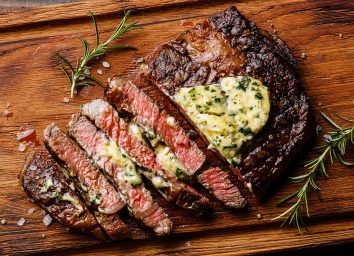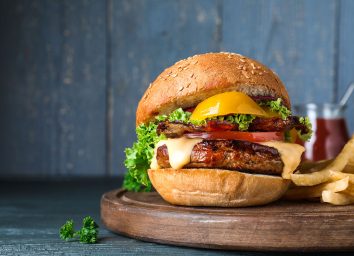Popular Foods That May Cause Lasting Damage to Your Liver, According to Science
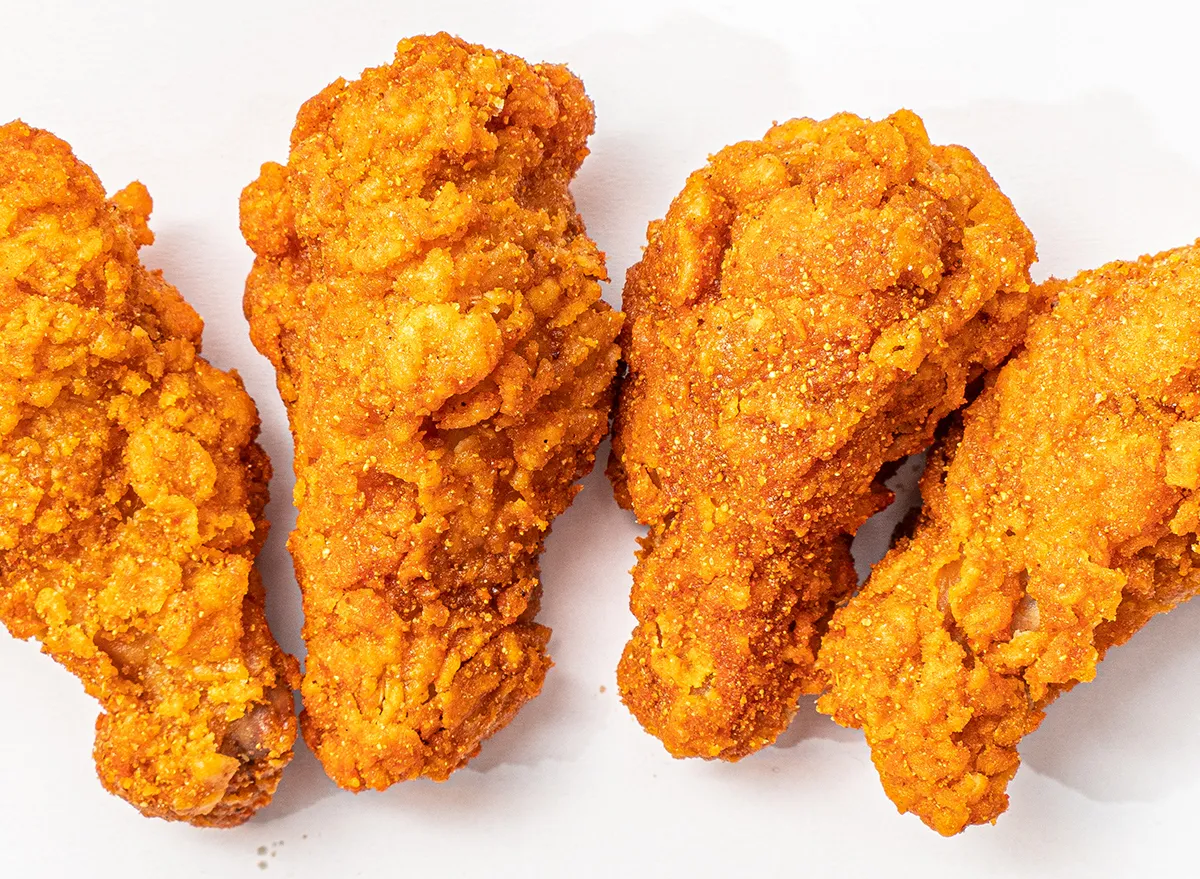
Your liver is one of the most important organs in your body, however, your diet choices could be harming it, and you may not even realize it.
According to the American Liver Foundation, it's estimated that about 25% of adults in the U.S. have non-alcoholic fatty liver disease (NAFLD). This common chronic liver condition occurs when excess fat is stored inside your liver's cells, primarily caused by routine unhealthy food choices. When fat accumulates in the liver from alcohol, the condition is referred to as alcoholic fatty liver disease. Both forms of fatty liver disease can damage the liver and prevent it from working properly.
Below, we outline just five types of foods (that you likely eat often!) that may be causing harm to your liver. After, be sure to read The 7 Healthiest Foods to Eat Right Now.
Red meat
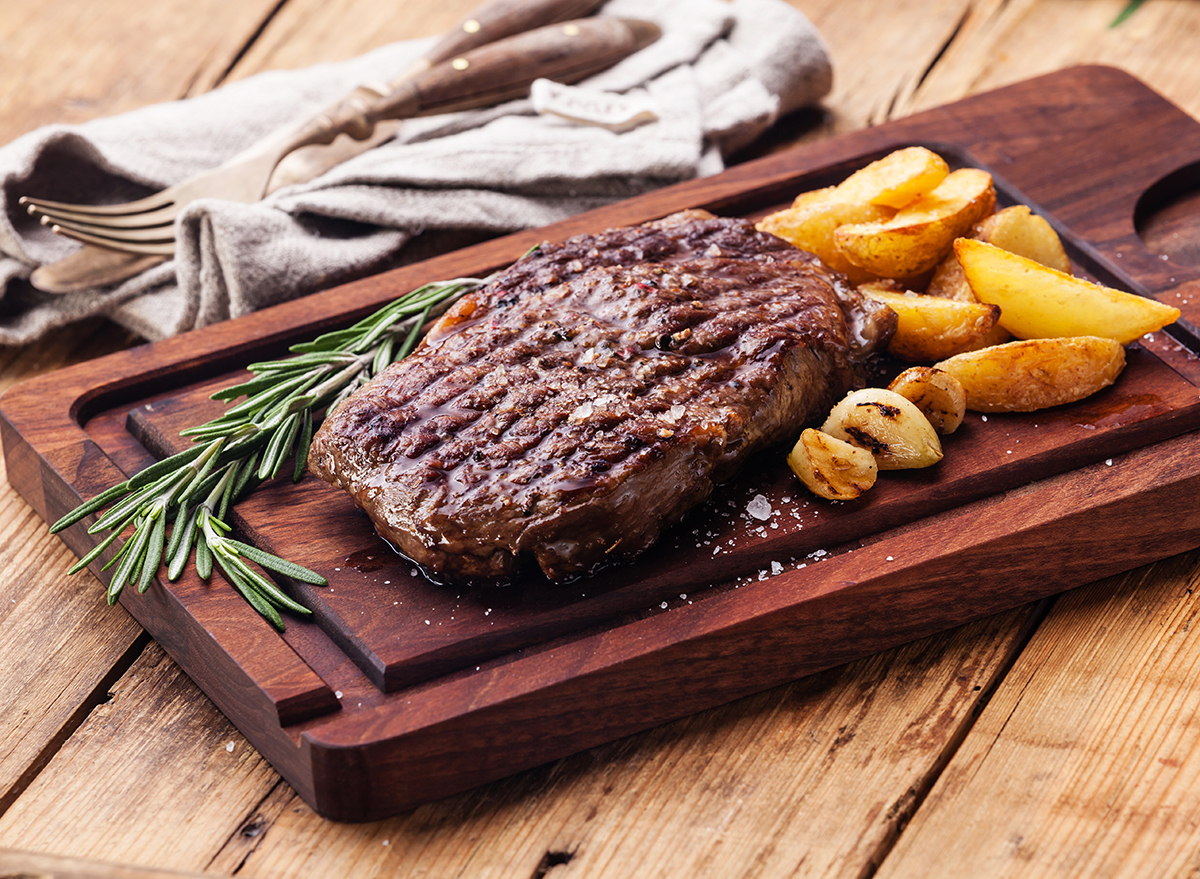
Americans love red meat. In fact, U.S. consumption of beef amounted to about 27.3 billion pounds in 2019 alone. While there are many reasons you should limit how many ribeye steaks or burgers you eat each month, from weight gain to heart disease, another reason to avoid red meat is that it may affect the health of your liver. A 2010 study found an association between red meat intake and increased risk of chronic liver disease as well as hepatocellular carcinoma, one of the most common types of liver cancer.
If you already have NAFLD, then you'll especially want to steer clear of red meat, many cuts of which are high in saturated fat. Those who have NAFLD already have too much fat in their liver, which hinders the organ from carrying out essential functions such as, removing toxins and producing bile. Consider capping your consumption of red meat at one serving per week.
Get even more healthy tips straight to your inbox by signing up for our newsletter.
Fried chicken
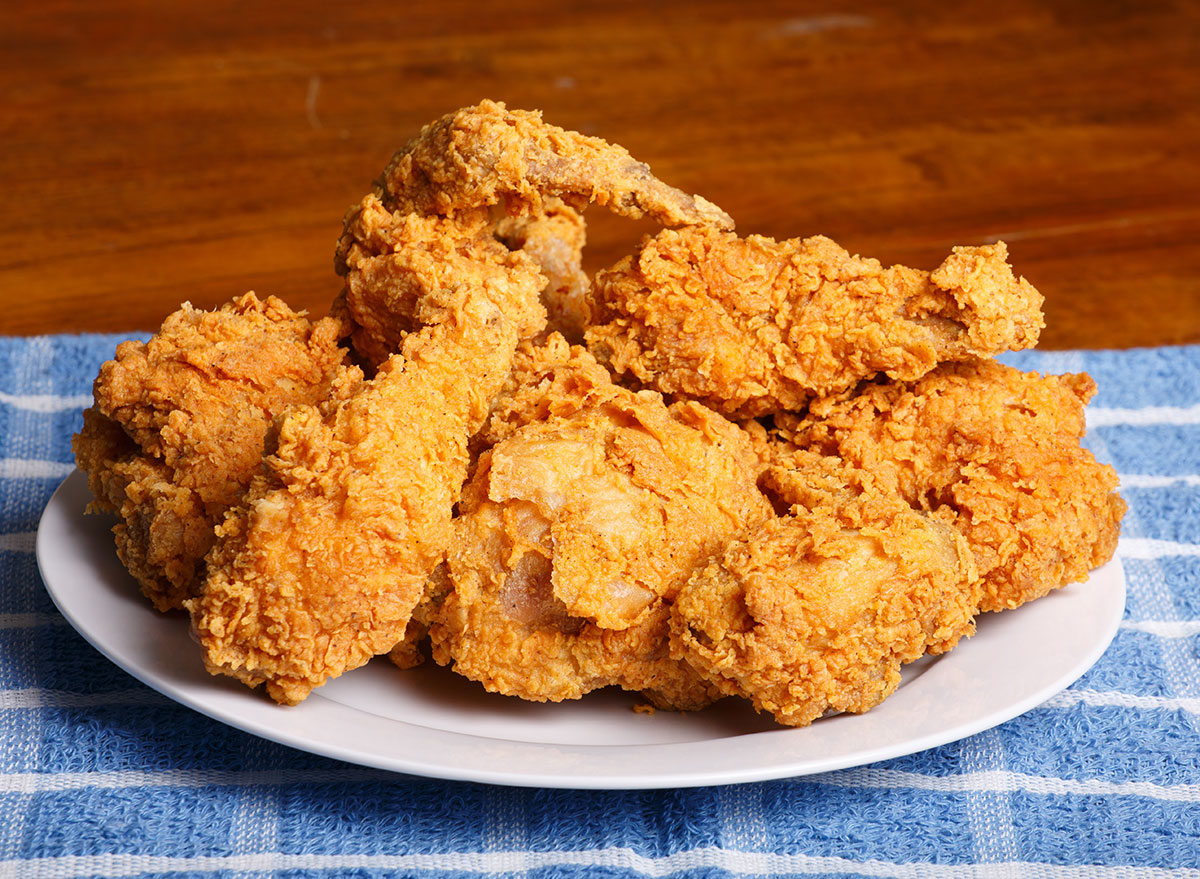
Similar to red meat, fried chicken packs a lot of saturated fat. This is because when foods are fried, they absorb the fats from the frying oil and as a result, become more calorically dense. While eating fried foods on the occasion won't cause severe health complications, eating them regularly can potentially do some damage, especially to your liver.
As Leann Poston, MD at Invigor Medical told us previously, "Diets high in saturated fats lead to increased liver fat and insulin resistance." Research indicates that both of these factors can increase the risk of NAFLD, which can then lead to late-stage scarring of the liver (cirrhosis) and even liver failure if left untreated.
White bread, pasta, rice
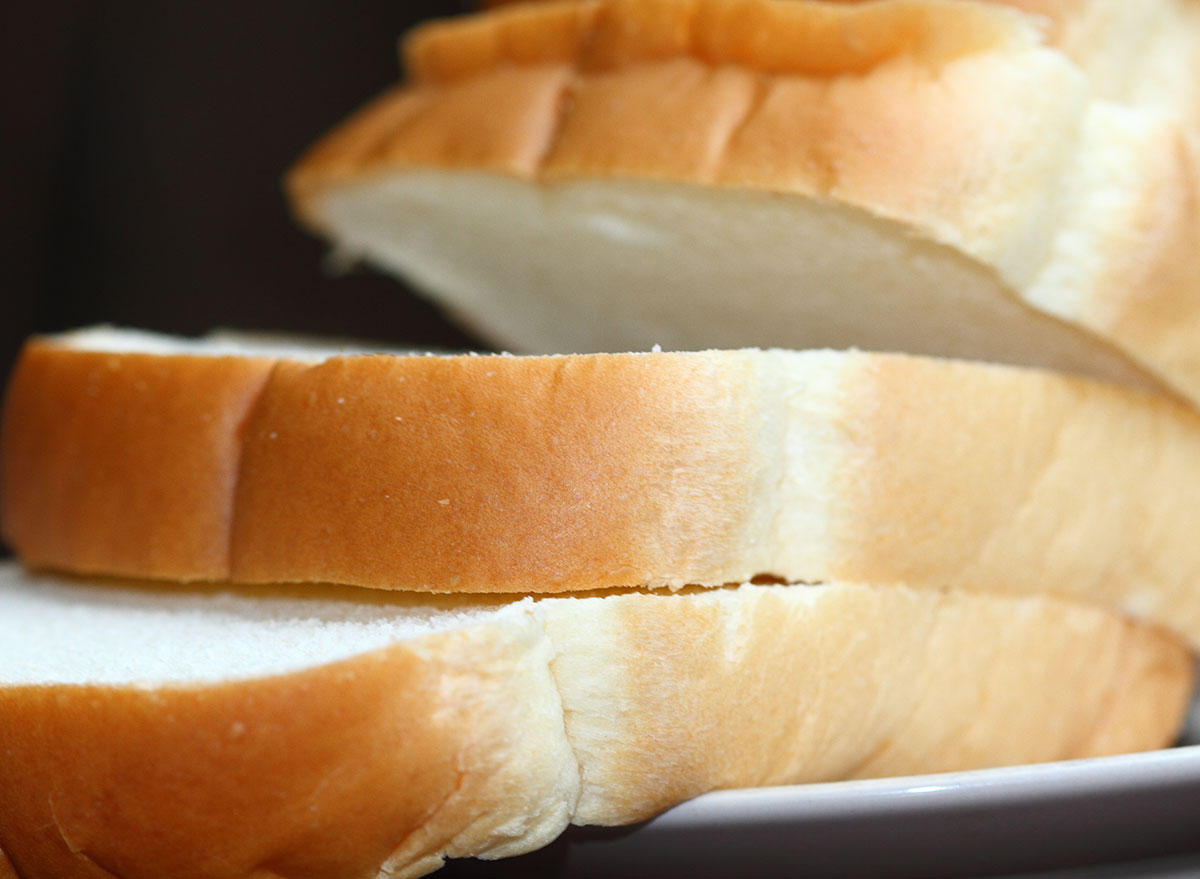
If you have the choice to choose whole grain or wheat over white bread, pasta, and rice, do it—if not for the uptick in fiber, then for the health of your liver. Refined carbohydrates, or processed grains that have been stripped of fiber, have a higher glycemic index (GI) than minimally processed whole grains. Foods with a high GI index can cause a rapid spike in blood sugar, which then triggers the pancreas to produce insulin. While this is a normal response, regularly eating these foods could exhaust the pancreas and cause the body to become insulin resistant.
Insulin resistance is believed to be a cause for NAFLD, as cells in the muscles, fat, and liver don't respond to the hormone properly, which then leads it to build up in the blood. When some of these fat molecules accumulate in liver cells, that's when NAFLD can develop. In short, limiting your intake of high GI foods can prevent help to prevent insulin resistance, which in turn, may also protect your liver.
Potato chips
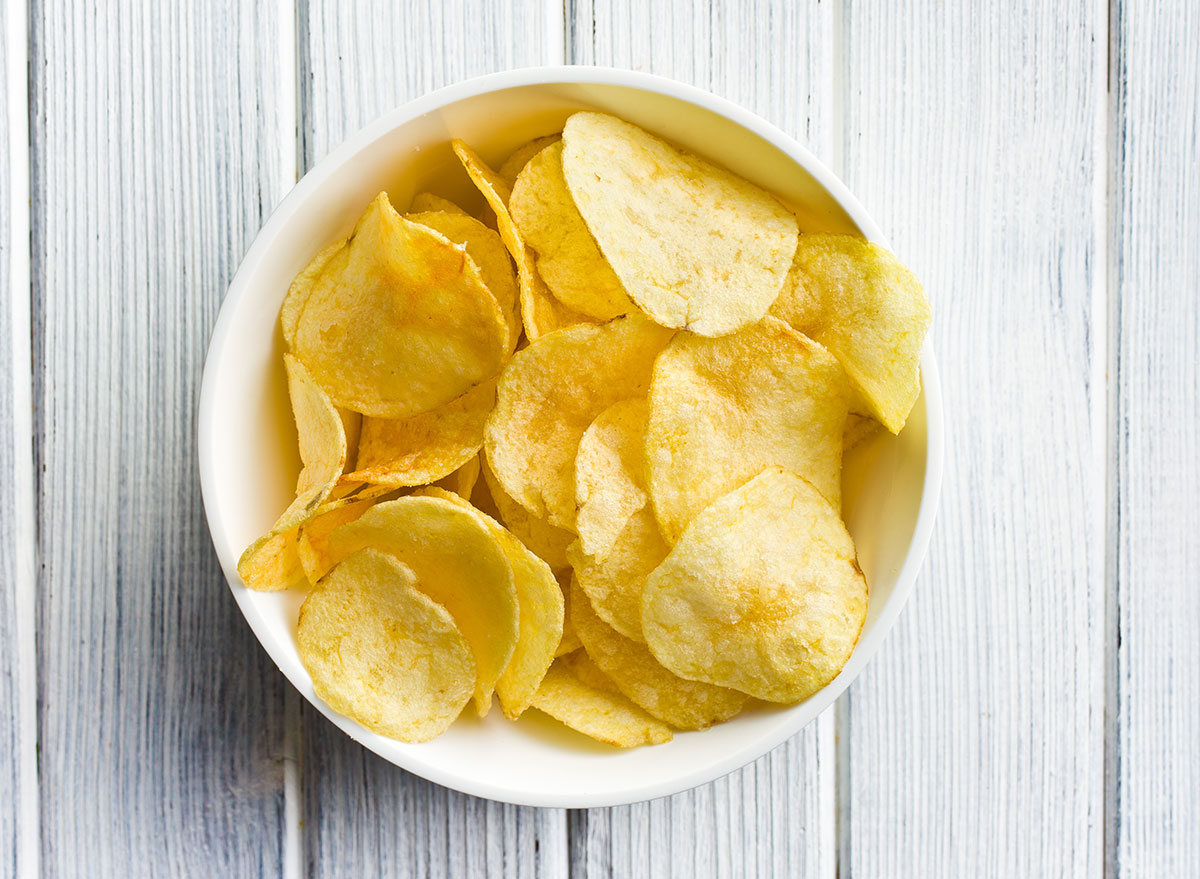
Consuming too many salty foods, such as potato chips, could be silently causing damage to your liver. According to a 2016 study, eating too much salt can lead to higher rates of cell death and lower rates of cell division, which can lead to liver fibrosis. When someone has liver fibrosis, that just means their liver contains abnormally large amounts of scar tissue and doesn't work as well. However, they may not even know they have it as fibrosis causes no symptoms. In severe cases of liver scarring, cirrhosis may develop which does cause symptoms.
Alcohol

Alcohol can do some damage to your liver if consumed in excess, which is especially relevant as the nation witnessed drastic changes in drinking habits last year. In fact, Keck Hospital at USC in Los Angeles reported in February that admissions for alcoholic hepatitis and liver failure increased by 30% in 2020, compared to the year prior. This significant uptick in liver complications was largely associated with alcohol abuse, the hospital reported.
Following the USDA Dietary Guidelines, women should consume no more than one alcoholic beverage each day, whereas men should cap their consumption at two to avoid health issues later down the road. However, one study published in the journal Hepatology suggests that men and women who occasionally binge drink, which is described by the CDC as having four or more drinks in two hours for women and five or more for men, is less likely to cause liver damage than drinking a small amount of alcohol each day.
Bottom line, it's likely best to limit your alcohol consumption to just a few servings a week to ensure you keep your liver in tip-top shape.
For more, be sure to check out Surprising Things Your Alcohol Habit Reveals About You, Says New Study.
